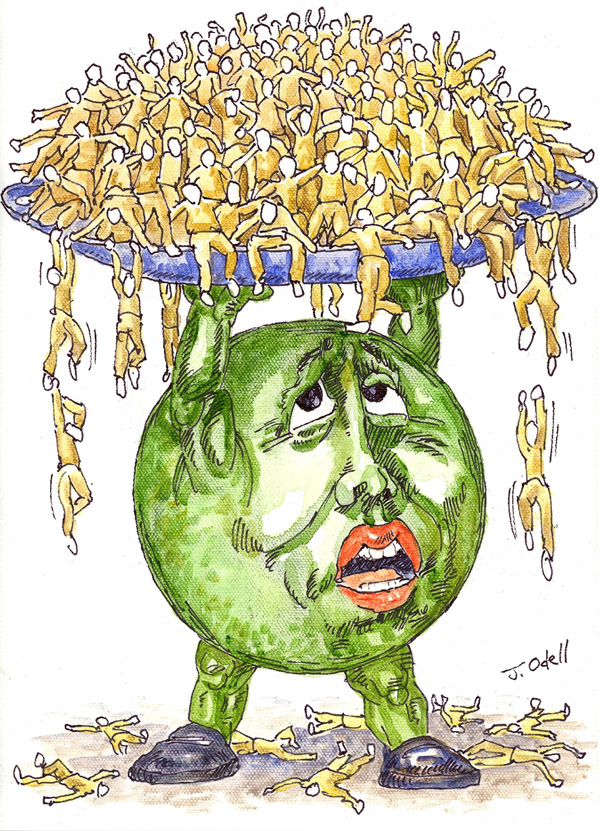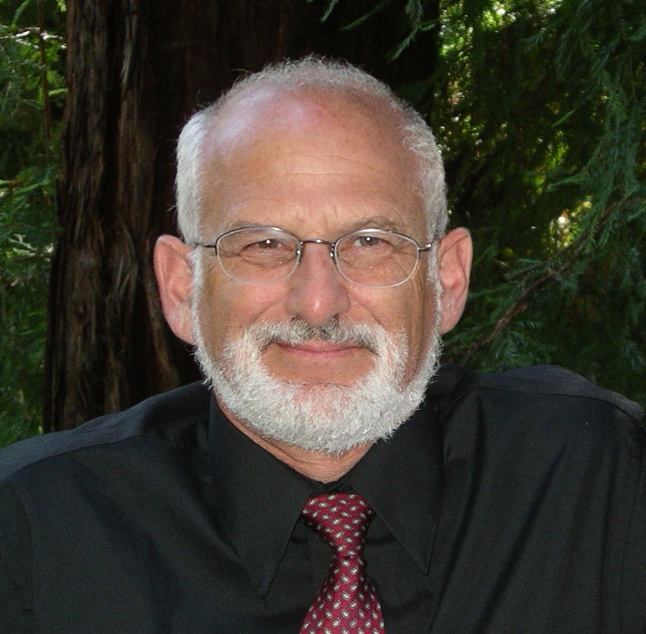Sustainability-- Crawling Back Into Our Niche
5 years ago, Kurt Dahl wrote the The Eden Proposition. This year, Dan Brown, a prominent novelist, in Inferno presents similar ideas -- humankind has grown beyond its niche on earth and is on a path to self destruction.
One way to get humankind "back-inside-its-niche" is to kill a large percentage of those living so the survivors have time to avoid the worst damage and set a new course that implements the required contraction into our niche.
While I don't align with contraction proposals implemented by single individuals, I recommend these books because they seriously inspect the human prospect.
How many people (at what level of wellbeing) can the niche support?
How much have we exceeded that number?
What means are available to contract to that number?
Who has control over implementing these means?
Is one of these means, a form of control that depends on consensus?"
(i.e. mutual coercion mutually agreed upon" ala G. Hardin.)
How do individual's gain this new perspective and become part of this consensus?
What laws would have to be enacted to reestablish a balance
between the human footprint and the niche?
The The Eden Proposition, Inferno, and two books by William Ophuls Immoderate Greatness and Plato's revenge entertain these questions.
While Ophuls' non fiction works require intense concentration, Dan Brown's novel "Inferno" should be required reading for every high school student. They will have to live in this future. This is a way for them to get a view of it.
Unfortunately, the school's curriculum (maybe all of our media) seems devoid of any future view. The curriculum, seems stuck reading Dickens, Austin and Twain because they show how culture unjustly doles out advantage and disadvantage and how leveling the playing field should be a goal, and how personal resolve overcomes adversity. There are worthy endeavors but the 18th century and 21st century present different threats to living one's life.
If today's largest problem is the human footprint has expanded outside of its niche; that overpopulation threatens the destruction of everything, not just individuals, then moving humankind back inside its niche, before all of civilization and the environment collapses, should be a central part of each student's education.
Contracting population, without genocide, requires a ground swell of like minded people creating social constraints on the birth and other behaviors that expanded humankind's footprint beyond its niche. It is the kind of civilization-change that could happen only when a dominate constituency knows.
humankind has outgrown its present niche,
Because of diminishing supporting resources
(fossil energy, fisheries, soil, and ...)
that niche is contracting.
Being outside the niche injures the environment.
Nature will unkindly push humankind back into its niche or simply expunge us.
This debacle will unfold this century. And
The change in behavior that counts
is the one that contracts our footprint before nature does.
(Obviously growth-stopping behavior does not create contraction.)
If the fastest way to contract footprint is rapid population decline, and genocide is out of the question, then we have to stop having babies. The prisoner's dilemma research explains why personal restraint in birth choices is not adequately powerful. Which leaves, as the remaining alternative, "civil control" over birth choices. This civil control, if it is to follow a consensus, depends on creating a dominant constituency. And the first steps in creating this constituency is for each person to understand:
a) that their genes, (and the resulting cultures and institutions) form a non viable system.
b) Humans collectively (not as individuals) must fit into a niche on earth.
c) What are the behaviors that lead to viability.
There are two obstacles to creating this constituency. First denial -people believe there is no problem. Second, resignation. Ruining one's niche has happened before on this earth. The bacteria that excreted oxygen as waste were so successful the oxygen caused their extinction. Leaving the oxygen environment that supports us. So humankind is just another link in this cosmic agenda and the dangers of expanding outside our niche should not worry us. Everything is as it should be.
However, another view is that while humans (like the bacteria) are doing themselves in, they have a sliver more consciousness. They have the capacity to know which behaviors will help themselves crawl (maybe battered) back into their niche. This might not be our last century.
At this juncture humans can add hundreds or millions of years to our presence on earth. Our consciousness may be able to find a way to pull down the population, and design a living process (not governed by our genes) that can sustain us inside our niche a lot longer.
Thus, humankind has three paths to crawl back into our niche. First, nature spanks us. Second, continuous culling. And third, getting 3 billion peoples' consciousness to create Garret Hardin's "Mutual coercion mutually agreed upon" to constrain the behavior that drives us out of our niche.
1/7/2014
Jack Alpert |
 |
 The front page of www.skil.org contains updated invitations movies, and archived content for Change the Course. The front page of www.skil.org contains updated invitations movies, and archived content for Change the Course. |
Change the CourseInternet Group Text Discussions video invite Text invite Text summary of video Electronic Conference Table discussions video invite Text invite Text summary of video Archived documents updated links at www.skil.org |
Too Many People Video series
|
From Overshoot to Sustainability |